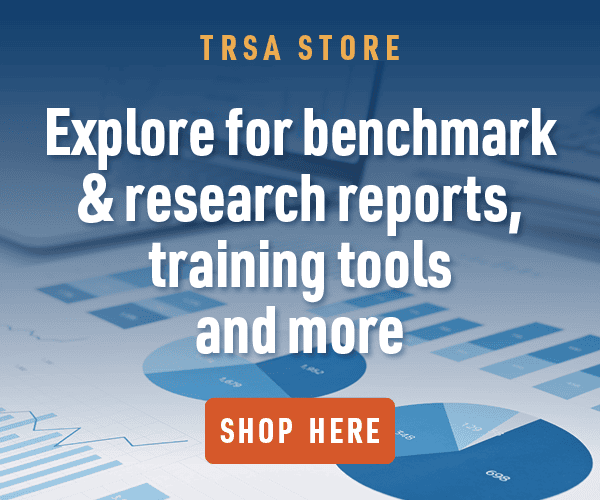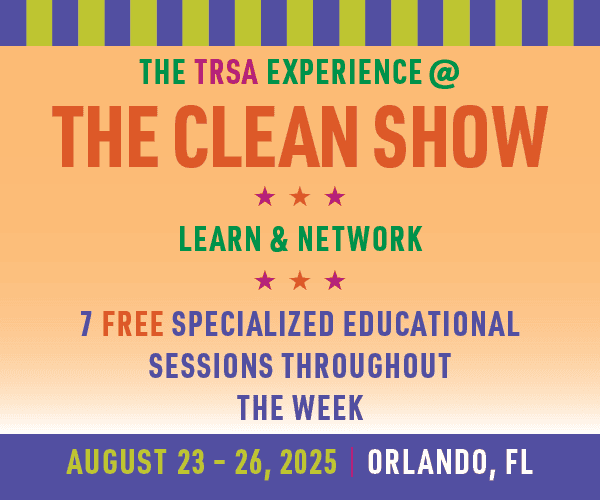The EPA announces a significantly stricter standard for fine soot
Background: The new standard would lower the National Ambient Air Quality Standards for fine particulate matter (PM2.5) from 12 micrograms per cubic meter of air to nine micrograms. If enacted, this would significantly increase the difficulty and cost for manufacturers to operate in “nonattainment” areas. They and their industrial laundry partners could find themselves unable to operate due to these restrictions.
Actions: An analysis by Oxford Economics commissioned by the National Association of Manufacturers (NAM) found that this standard could cut GDP by nearly $200 billion and cost up to 1 million jobs by 2031.
Status: TRSA has spoken out repeatedly against this stricter regulation and is calling on Congress to reverse it. Recently, TRSA joined a NAM lawsuit against the Environmental Protection Agency (EPA) rule on fine soot.
Changes to PFAS reporting requirements and supplier notifications for chemicals of special concern
Background: The Environmental Protection Agency (EPA) recently passed a rule designating PFOA and PFOS as hazardous substances under the Comprehensive Environmental Response, Compensation and Liability Act (CERCLA). This rule will create reporting requirements and potential cleanup actions. The EPA also issued National Primary Drinking Water regulations that set maximum contaminant levels for six varieties of PFAS.
Actions: TRSA is engaging with Congress, the EPA, state and local policymakers, industry coalition partners and others. We hosted a June 2024 webinar with EPA officials to inform our members on the implications of recent regulation for our industry and to share information on future EPA efforts.
Status: Co-signed a letter expressing concern over the Hazardous Substance designation and requesting more time for public comment. TRSA drafted a letter to EPA Administrator Michael Regan requesting financial incentives to offset the costs of PFAS remediation. We are working with members of Congress to build a bipartisan coalition of sponsors.
DOL overtime proposal
Background: The Department of Labor (DOL) has been in the rulemaking process to raise the minimum salary threshold under which workers must receive overtime. The rule will increase the minimum salary threshold from $35,568 to $43,888 in July, and then to $58,656 in 2025 followed by automatic updates every three years. Salary thresholds for highly compensated employees would rise as well.
Actions: Employer organizations are considering litigation challenging the rule. TRSA submitted a letter requesting an extension of the comment period.
Status: The final rule was issued in April, 2024, but in November a U.S. District Court judge struck it down. It’s unclear how the Trump DOL will respond. TRSA and coalition partners will continue to monitor the issue.
OSHA heat injury and illness Notice of Proposed Rulemaking (NPRM)
Background: OSHA is in the rulemaking process for the first federal workplace heat standard that, if enacted, would affect approximately 36 million workers. In October 2021, OSHA issued an Advanced Notice of Proposed Rulemaking (ANPRM) for an Indoor and Outdoor Heat Illness Prevention Standard. On Aug. 30, 2024, OSHA published the Notice of Proposed Rulemaking (NPRM), beginning a 120-day comment period.
Actions: In collaboration with coalition partners, TRSA is developing/submitting comments to OSHA on the rule.
Status: TRSA submitted comments to OSHA over concern with the ANPRM process.
Expand reusable healthcare PPE use
Background: TRSA members supply, launder and maintain sustainable, reusable, hygienically clean and safe textiles including linens, uniforms, garments and personal protective equipment (PPE). If properly incentivized, the industry can promote supply-chain security, environmental sustainability, cost-savings and safety by increasing the share of reusable healthcare textiles (HCTs) in healthcare settings.
Actions: TRSA helped build a bipartisan coalition in Congress to submit a letter to HHS Secretary Xavier Becerra. Consequently, the CDC launched a study of reusable vs. single-use HCTs. A stakeholder workshop highlighted the benefits of reusables in healthcare settings.
Status: TRSA is meeting with federal and state policymakers to call for reusable HCTs, minimum-operating threshold of reusable hygienically clean HCTs.
State Initiatives
Texas
Background: TRSA is backing a bill (HB 1769) that could cut the linen, uniform and facility services industry’s state tax burden from .755 to .375%. A legislative day was planned for March 11–12 in Austin, TX to lobby lawmakers to support the measure.
Actions: A prior version of HB 1769, which calls for reclassifying certain entities as primarily engaged in retail trade for the purposes of the franchise tax, passed the State House of Representatives, but stalled in the State Senate.
Status: HB 1769 was filed in January; it’s awaiting action.
California
Background: TRSA is playing both offense and defense in the California legislature. We are fighting new versions of the microparticle filtration and plastic-wrap bans, as well as Extended Producer Responsibility (EPR) legislation. On offense, TRSA is promoting 50% reusable textiles in healthcare settings. TRSA is working on a bill with a state environmental group.
Actions: TRSA is contacting legislators to protect and promote the linen, uniform and facility services industry.
Status: The EPR legislation passed with an amendment that TRSA drafted to exempt the rental side of operations.
Illinois
Background: Illinois SB2727 would impose a microfiber-filtration requirement on washing machines, beginning Jan. 1, 2030.
Actions: TRSA is advocating for a policy that doesn’t place undue burdens on our industry and its customers; TRSA is also seeking to clarify the potential impact on the industry of a proposed sales/lease tax.
Status: The microfiltration bill died in committee last session, and TRSA is prepared oppose a new version if it’s reintroduced this year. TRSA is monitoring the tax issue.
New York
Background: TRSA is advocating for legislation that would require a 50% minimum operating threshold of reusable healthcare protective textiles in healthcare settings. TRSA is working with lawmakers to reintroduce this bill.
TRSA remains opposed to a congestion-pricing scheme that is costing delivery trucks up to $21.60 per trip into Manhattan’s Central Business District at or below 60th Street. The toll issue may change after the U.S. Department of Transportation rescinded its approval last month.
Actions:
TRSA is engaging policymakers to advance the industry’s goals, including hosting TRSA-member site visits and “Hill Day” sessions in Albany to educate policymakers and boost support for our key issues.
TRSA filed a declaration of support for a lawsuit against the congestion-pricing program.
Status: TRSA is working with legislators to reintroduce the reusables bill in the current legislative session.
TRSA continues to oppose the congestion pricing program, while advocating for price parity with cars and a per-day instead of per-trip fee if the policy advances.
Kentucky
Issue Background: Recent regulations require our industry to pay both sales tax on their purchases and charge sales tax again on the services they provide to customers. This has led to a situation of double taxation or tax pyramiding, wherein the Department of Revenue (DOR) essentially charges sales taxes twice on the same items.
Actions: TRSA and industry stakeholders are meeting with policymakers and advocating to correct this policy.
Status: TRSA is working with legislators and the DOR to introduce a bill to clarify and correct the double-tax.
Wisconsin
Issue Background: A Wisconsin corporation may claim a corporate income/franchise tax credit of 7.5% of “qualified production activities income,” which includes manufacturing.
Actions: TRSA has recently hosted “Hill Days” in Madison and facility tours with legislators. We have drafted legislative language and secured bill sponsors to change the industry’s Standard Industrial Classification (SIC) codes.
Status: AB945 passed the Assembly Committee, but didn’t receive a vote in the previous session. We expect the bill to be re-introduced in early March. We hope to see it enacted this session. TS
Categories
Magazine Article Type
Department, Policy Moves
Starting Page
16




